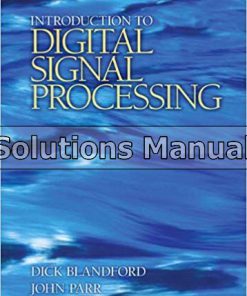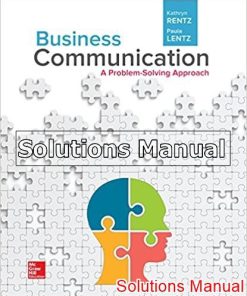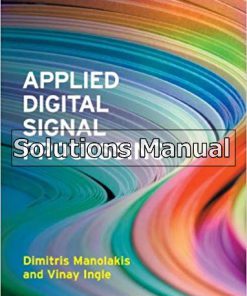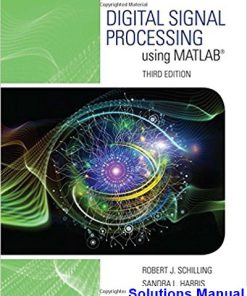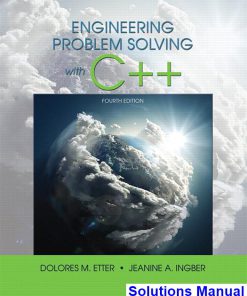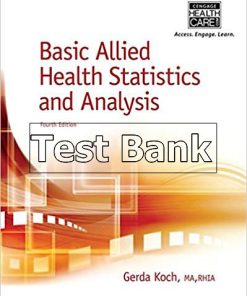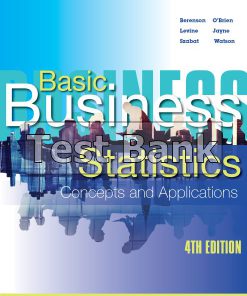Digital Signal Processing Using MATLAB A Problem Solving Companion 4th Edition Ingle Solutions Manual
$26.50$50.00 (-47%)
Digital Signal Processing Using MATLAB A Problem Solving Companion 4th Edition Ingle Solutions Manual.
You may also like
Digital Signal Processing Using MATLAB A Problem Solving Companion 4th Edition Ingle Solutions Manual
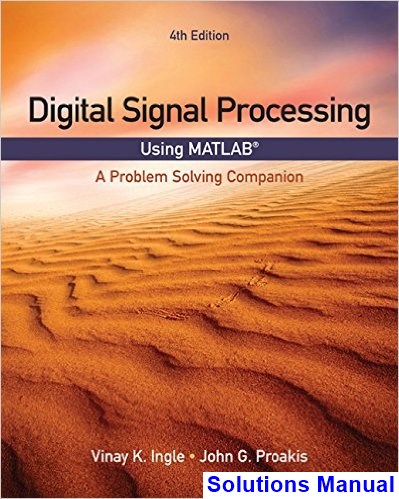
Product details:
- ISBN-10 : 1305635124
- ISBN-13 : 978-1305635128
- Author: Dr. Vinay K.
Learn to use MATLAB as a useful computing tool for exploring traditional Digital Signal Processing (DSP) topics and solving problems to gain insight with this supplementary text. DIGITAL SIGNAL PROCESSING USING MATLAB: A PROBLEM SOLVING COMPANION, 4E greatly expands the range and complexity of problems that you can effectively study. Since DSP applications are primarily algorithms implemented on a DSP processor or software, they require a significant amount of programming. Using interactive software, such as MATLAB, enables you to focus on mastering new and challenging concepts rather than concentrating on programming algorithms. This edition discusses interesting, practical examples and explores useful problems. New online chapters introduce advanced topics, such as optimal filters, linear prediction, and adaptive filters, which are essential in furthering your academic studies at the graduate level.
Table contents:
1. INTRODUCTION.
Overview of Digital Signal Processing. A Brief Introduction to MATLAB®. Applications of Digital Signal Processing. Brief Overview of the Book.
2. DISCRETE-TIME SIGNALS AND SYSTEMS.
Discrete-time Signals. Discrete Systems. Convolution. Difference Equations.
3. THE DISCRETE-TIME FOURIER ANALYSIS.
The Discrete-time Fourier Transform (DTFT). The Properties of the DTFT. The Frequency Domain Representation of LTI Systems. Sampling and Reconstruction of Analog Signals.
4. THE z-TRANSFORM.
The Bilateral z-Transform. Important Properties of the z-Transform. Inversion of the z-Transform. System Representation in the z-Domain. Solutions of the Difference Equations.
5. THE DISCRETE FOURIER TRANSFORM.
The Discrete Fourier Series. Sampling and Reconstruction in the z-Domain. The Discrete Fourier Transform. Properties of the Discrete Fourier Transform. Linear Convolution Using the DFT. The Fast Fourier Transform.
6. IMPLEMENTATION OF DISCRETE-TIME FILTERS.
Basic Elements. IIR Filter Structures. FIR Filter Structures. Overview of Finite-Precision Numerical Effects. Representation of Numbers. The Process of Quantization and Error Characterizations. Quantization of Filter Coefficients.
7. FIR FILTER DESIGN.
Preliminaries. Properties of Linear-phase FIR Filters. Window Design Techniques. Optimal Equiripple Design Technique.
8. IIR FILTER DESIGN.
Some Preliminaries. Some Special Filter Types. Characteristics of Prototype Analog Filters. Analog-to-Digital Filter Transformations. Lowpass Filter Design Using MATLAB®. Frequency-band Transformations.
9. SAMPLING RATE CONVERSION.
Introduction. Decimation by a Factor D. Interpolation by a Factor I. Sampling Rate Conversion by a Rational Factor I/D. FIR Filter Designs for Sampling Rate Conversion. FIR Filter Structures for Sampling Rate Conversion.
10. ROUND-OFF EFFECTS IN DIGITAL FILTERS.
Analysis of A/D Quantization Noise. Round-off Effects in IIR Digital Filters. Round-off Effects in FIR Digital Filters.
11. APPLICATIONS IN ADAPTIVE FILTERING.
LMS Algorithm for Coefficient Adjustment. System Identification of System Modeling. Suppression of Narrowband Interference in a Wideband Signal. Adaptive Line Enhancement. Adaptive Channel Equalization.
12. APPLICATIONS IN COMMUNICATIONS
Pulse-Code Modulation. Differential PCM (DPCM). Adaptive PCM and DPCM (ADPCM). Delta Modulation (DM). Linear Predictive Coding (LPC) of Speech. Dual-tone Multifrequency (DTMF) Signals. Binary Digital Communications. Spread-Spectrum Communications.
13. RANDOM PROCESSES
Random Variable, A Pair of Random Variables, Random Signals, Power Spectral Density, Stationary Random processes through LTI Systems, Useful Random Processes.
14. LINEAR PREDICTION AND OPTIMUM LINEAR FILTERS
Innovation Representation of a Stationary Random Processes, Forward and Backward Linear Prediction, Solutions of Normal equations, Properties of Linear Prediction-Error Filters, AR Lattice and ARMA Lattice Filters, Wiener Filters for Filtering and Prediction.
15. ADAPTIVE FILTERS
Applications of Adaptive Filters: System Identification and modeling, Adaptive Channel equalization, Echo cancellation, Suppression of Narrowband Interference in Wideband Signal, Adaptive Line Enhancer, Adaptive Noise Cancelling, Linear Predictive Coding of Speech Signals, Adaptive Arrays, Adaptive Direct Form FIR Filters: The LMS Algorithm, The RLS Algorithm for the Direct Form FIR Filters.
People also search:
digital signal processing using matlab 4th edition solution manual pdf
digital signal processing using matlab 4th edition
matlab digital signal processing
tlab digital signal processing toolbox
why digital signal processing

